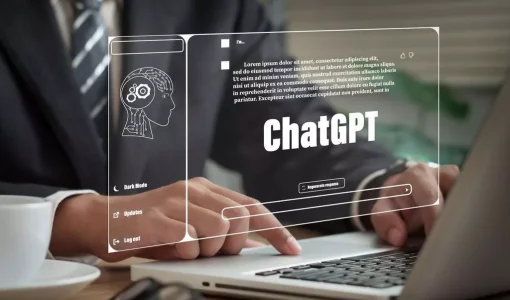Blog
Top 5 Healthcare Chatbot Uses Cases & Examples 2023

People with chronic health issues, such as diabetes, asthma, etc., can benefit most from it. Challenges like hiring more medical professionals and holding training sessions will be the outcome. You may address the issues and provide the scalability to handle real-time discussions by integrating a healthcare chatbot into your customer support. When patients come across a long wait period, they often cancel or even change their healthcare provider permanently. The use of chatbots in healthcare has proven to be a fantastic solution to the problem.
Researchers Highlight Pros and Cons of ChatGPT in Clinical … – HealthITAnalytics.com
Researchers Highlight Pros and Cons of ChatGPT in Clinical ….
Posted: Thu, 01 Jun 2023 07:00:00 GMT [source]
Perhaps for this reason, multi-channel pharma is now more popular than ever before. Most of us can probably remember a time or two trying to get an appointment with our doctor. The patient is on the phone for what seems like an eternity, the call is transferred between different departments and staff, and put on hold, before finally getting an appointment confirmation.
A greater contribution to the development of commercial enterprise
In addition, longer follow-up periods with larger and more diverse sample sizes are needed for future studies. From the patient’s perspective, various chatbots have been designed for symptom screening and self-diagnosis. The ability of patients to be directed to urgent referral pathways through early warning signs has been a promising market. Decreased wait times in accessing health care services have been found to correlate with improved patient outcomes and satisfaction [59-61]. The automated chatbot, Quro (Quro Medical, Inc), provides presynopsis based on symptoms and history to predict user conditions (average precision approximately 0.82) without a form-based data entry system [25].
With the aid of a medical chatbot, patients can get the information they need when they need it and enjoy a better healthcare experience. Chatbots aren’t meant to replace doctors or nurses, but they will make the whole patient care experience a lot simpler and faster. Your patients will have a 24/7 virtual nurse in their pocket to track and optimize their health journey in real time. Mental health chatbots can help fill this gap through cognitive behavioral therapy (CBT). As a result, patients with depression, anxiety, or any other mental health issues can now find a virtual shoulder to lean on. On the other hand, they entail currently unknown and potentially large risks of false information and algorithmic bias.
Top 7 use cases of chatbots for the healthcare sector
The systematic literature review and chatbot database search includes a few limitations. The literature review and chatbot search were all conducted by a single reviewer, which could have potentially introduced bias and limited findings. In addition, our review explored a broad range of health care topics, and some areas could have been elaborated upon and explored more deeply.
How will chatbot affect healthcare?
AI chatbots and virtual assistants can help doctors with routine tasks such as scheduling appointments, ordering tests, and checking patients' medical history. AI can also help analyze patient data to detect patterns and provide personalized treatment plans.
Through patient preferences, the hospital staff can engage their patients with empathy and build a rapport that will help in the long run. When a patient checks into a hospital with a time-sensitive ailment, the chatbot can offer information about the relevant doctor, the medical condition and history, and so on. Chatbots can extract patient information by asking simple questions such as their name, address, symptoms, current doctor, and insurance details. The chatbots then, through EDI, store this information in the medical facility database to facilitate patient admission, symptom tracking, doctor-patient communication, and medical record keeping. The widespread use of chatbots can transform the relationship between healthcare professionals and customers, and may fail to take the process of diagnostic reasoning into account. This process is inherently uncertain, and the diagnosis may evolve over time as new findings present themselves.
OUR PRODUCTS & SERVICES
In this blog post, we’ll walk you through everything you need to know to create your own artificial intelligence chatbot. First, you’ll need to decide what platform you want to build your chatbot on. There are many different options available, but we recommend using Facebook Messenger, since it’s easy to use and has a large user base. Python is a widely used programming language for developing artificial intelligence applications. TensorFlow and NLTK libraries are used in this project for implementing machine learning algorithms. Any business can request the opportunity to scale the support up front, especially those in the healthcare industry.
- You can’t be sure your team delivers great service without asking patients first.
- You can see more reputable companies and resources that referenced AIMultiple.
- Chatbots specially designed for mental health are invaluable for those struggling with depression, anxiety, and other issues.
- If you believe Wordfence should be allowing you access to this site, please let them know using the steps below so they can investigate why this is happening.
- The app asks a number of questions based on CDC guidelines and, depending on the answers, gives an option to contact a doctor or participate in a virtual video visit.
- A study by Gartner reported that almost 75% of healthcare delivery organizations will have in some way or another invested in AI by late 2021.
In almost any industry, knowing and understanding what your customers/patients think about the service you provide and why they feel that way is imperative. A health chatbot can gather all this information which you can then use to improve certain aspects of your practice to your patients’ liking. Oriented toward mental health, Youper’s AI monitors and improves emotional health through personalized conversations and psychological techniques based on the latest scientific research.
Benefits of chatbots in healthcare
Many people who make an appointment for a colonoscopy, for example, cancel it or fail to show up. The problem is particularly extreme in vulnerable or disadvantaged populations — studies show that as many as 40 percent of these patients don’t follow through with the procedure. Rise in hospital cost savings due to use of healthcare chatbots across the globe is a compelling factor that boots the growth of the healthcare chatbots market. Moreover, surge in internet connectivity and smart device adoption is another factor that contributes toward the growth of the market.

Today, chatbots offer diagnosis of symptoms, mental healthcare consultation, nutrition facts and tracking, and more. For example, in 2020 WhatsApp teamed up with the World Health Organization (WHO) to make a chatbot service that answers users’ questions on COVID-19. AI-enabled patient engagement chatbots in healthcare provide prospective and current patients with immediate, specific, and accurate information to improve patient care and services. This healthcare chatbot is a messaging service that assists healthcare professionals.
ChatGPT in Audit: 5 Use cases, Benefits & Challenges in 2023
The ChatGPT/GPT-4, which is its updated version, also provided real-time surgical navigation information and physiological parameter monitoring, as well as aided guiding postoperative rehabilitation. If you are interested in knowing how chatbots work, read our articles on What are Chatbot, How to make chatbot and natural language processing. Symptomate is a multi-language chatbot that can assess symptoms and instruct patients about the next steps. You need to enter your symptoms, followed by answering some simple questions.
- Happier patients, improved patient outcomes, and less stressful healthcare experiences, fueled by the global leader in conversational AI.
- The chatbot technology will make the procedure of appointment scheduling as fast and convenient for patients.
- To respond to general inquiries from customers, several healthcare service providers are transforming FAQs by including an interactive healthcare chatbot.
- The robust features of this platform help triage customer service requests, advanced capabilities & image analysis to help you supercharge your ability to engage customers.
- Chatbots are conversation platforms driven by artificial intelligence (AI), that respond to queries based on algorithms.
- At Kommunicate, we are envisioning a world-beating customer support solution to empower the new era of customer support.
However, in other domains of use, concerns over the accuracy of AI symptom checkers [22] framed the relationships with chatbot interfaces. The trustworthiness and accuracy of information were factors in people abandoning consultations with diagnostic chatbots [28], and there is a recognized need for clinical supervision of the AI algorithms [9]. In the light of the huge growth in the deployment of chatbots to support public health provision, there is pressing need for research to help guide their strategic development and application [13]. Reviewing current evidence, we identified some of the gaps in current knowledge and possible next steps for the development and use of chatbots for public health provision.
How Much Does it Cost to Build a Diabetes Management App like MySugr?
It is very well known that doctors always try to be available for their patients but sometimes it is impossible to cater to every patient due to their tight schedule. A US-based care solutions provider got a patient mobile app integrated with a medical chatbot. The chatbot offered informational support, appointment scheduling, patient information collection, and assisted in the prescription refilling/renewal. By automating the patient intake process using a doctor bot, you can reduce the total workload.
With the rapidly increasing applications of chatbots in health care, this section will explore several areas of development and innovation in cancer care. Various examples of current chatbots provided below will illustrate their ability to tackle the triple aim of health care. The specific use case of chatbots in oncology with examples of actual products and proposed designs are outlined in Table 1. Although there are a variety of techniques for the development of chatbots, the general layout is relatively straightforward.
Implications for Future Research
Depending on the interview outcome, provide patients with relevant advice prepared by a medical team. Share information about your working hours, clinicians, treatments, and procedures. Patients who look for answers with unreliable online resources may draw the wrong conclusions. Help them make informed health decisions by sharing verified medical information. Her aim is to provide knowledge to users by sharing the knowledge about the latest trends about contact centers.
One of the latest tools to enter the healthcare communication space is chatbots. Chatbots can also be used to book appointments, order prescriptions, or even conduct basic medical consultations. A number of companies have already developed healthcare chatbots using a variety of different platforms.
To further speed up the procedure, an AI healthcare chatbot can gather and process co-payments. Since chatbots facilitate quick and simple contact, this approach to gathering feedback proves more effective. Customers feel more connected to your business if they know their opinions are valued.
What are the future benefits of AI in healthcare?
By using AI, researchers will be able to assess vast amounts of patient outcome data to identify substances that are more likely to be effective against certain diseases. At the same time, they can also screen compounds that are safe for human consumption and cheap and easy to make.
Chatbots are the future of healthcare and this is further solidified by the study conducted by Juniper Research, which reported that healthcare chatbots have helped organizations save almost $3.6 billion annually. Today, chatbots offer a diagnosis of symptoms, mental healthcare consultation, nutrition facts and tracking, and more. Chatbots are designed to help patients and doctors communicate with each other more easily. Furthermore, they automate manual processes such as scheduling appointments, ordering prescriptions, and providing medical advice. With the help of this technology, doctors and nurses can save time on administrative tasks, as well.
- Although there are a variety of techniques for the development of chatbots, the general layout is relatively straightforward.
- A chatbot can tell you about general health or how to deal with a certain condition, for example.
- On the other side, Asia-Pacific is estimated to register the fastest growth during the forecast period owing to surge in awareness related to the use of healthcare chatbots.
- With its advanced AI capabilities, user-friendly interface, and pre-built templates for healthcare applications, Capacity provides a powerful platform for creating effective chatbots to improve patient experience and care.
- They can suggest tailored meal plans, prompt medication reminders, and motivate individuals to seek specialized care.
- In addition, longer follow-up periods with larger and more diverse sample sizes are needed for future studies.
AI chatbots can assess patients for clinical trial eligibility and supply information about ongoing trials, accelerating the process of enrolling participants and collecting data. In today’s digital metadialog.com healthcare landscape, an AI-based bot has become a must-have. It keeps your facility accessible round-the-clock, without you having to spend heavily on recruiting customer service reps.
Inflection AI Pi Chatbot: Bill Gates’ Favorite Assistant – Dataconomy
Inflection AI Pi Chatbot: Bill Gates’ Favorite Assistant.
Posted: Thu, 25 May 2023 07:00:00 GMT [source]
What are the benefits of AI chatbots in healthcare?
AI chatbots can also facilitate communication between healthcare professionals and patients, leading to improved coordination. For example, AI chatbots can help patients schedule appointments, track their symptoms, and receive reminders for follow-up care.



















